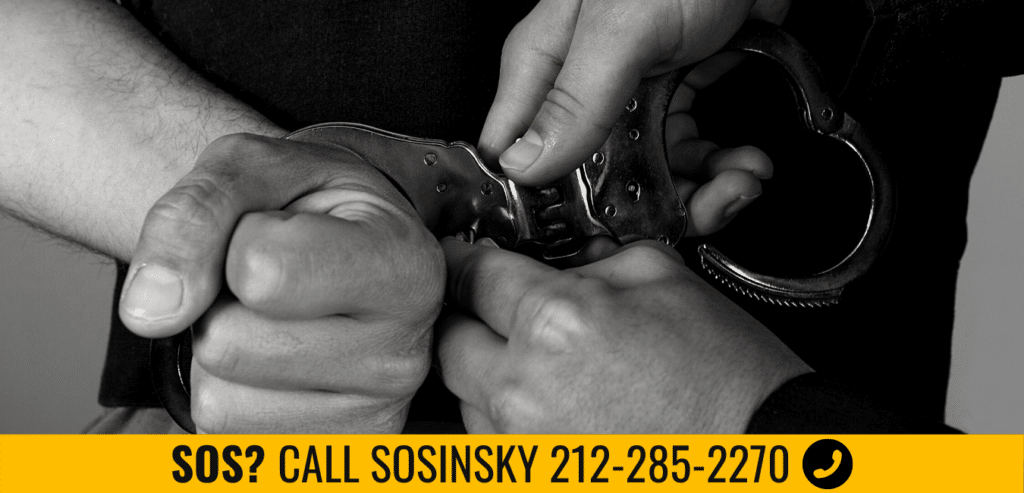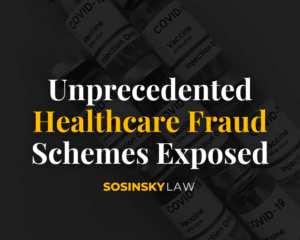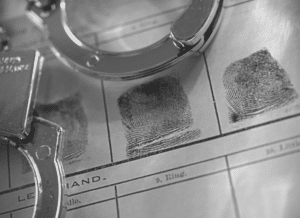NYC Coercion & Extortion Attorney
Coercion & Extortion Charges In New York City
If you are facing extortion charges in New York, it can be a difficult situation to navigate. Even when the property was not exchanged, individuals with deep knowledge of the law and an eye for detail may still find themselves charged. In this type of circumstance, getting a highly experienced NYC extortion attorney is crucial in order to build a successful defense; after all, everyone deserves their right to fair representation.
Sosinsky Law has the experts you need to safeguard yourself in an extortion case. Our office found in New York City has earned a strong reputation for producing positive results on behalf of our clients at both state and federal courts. Our top-notch criminal defense attorney will guarantee your rights remain secure throughout legal proceedings while pursuing the most favorable outcome even when matters appear complex. Contact our office today for a free consultation and to learn more about how we can help.
Definition Of Extortion Under New York Penal Law
In New York State, extorting someone is a crime that falls under the category of theft. According to Section 155.05(2)(e) of the New York Penal Law, an individual can be charged with extortion when they use threats such as public humiliation, physical violence, or damage to property in order to coerce someone into giving up money or possessions. Depending on the gravity and context of this wrongdoing, it could be a Class E Felony or even a Class C felony – the latter carrying fifteen years imprisonment. Furthermore, other intimidating methods are also considered forms of extortion:
- When an alleged criminal declares they will bring charges against their victim unless some form of benefit is received, this serves as a clear warning to the potential target.
- When someone is charged with a crime and threaten to reveal an embarrassing secret or act that would cause the victim to be ridiculed, disrespected, or despised unless they receive something in return, this is called blackmail.
- When someone makes an implicit or explicit threat to bring about a boycott, strike, or any other form of labor action that will adversely affect the victim’s business unless they receive some kind of benefit in return—it is considered extortion.

Definition Of Coercion Under New York Penal Law
According to New York Penal Law Section 135.60, Coercion in the Third Degree occurs when a person is forced into action against their will, such as joining a criminal organization or enterprise through intimidation and physical force. This type of coercion can result in serious consequences: with up to one year of jail time or three years probation for those convicted—making it classified as a Class A misdemeanor.
Coercion In The Second Degree
According to the New York penal code, coercion can be established by means of threats against a victim’s property or well-being, such as fear of physical harm or other criminal activities. It is also possible for an extortioner to compel someone into action by threatening legal ramifications unless that individual complies with their wishes. In either case, this law further clarifies what constitutes coercion and its implications for victims involved in such situations.
As a government official, coercion can take many forms. From the threat of using one’s position to inflict harm on another person, to testify against them in an open court case – these are all common tactics used by those with power and influence. However, this is not where it ends; any attempt at harming someone else’s health, career prospects, personal relationships, or finances could also qualify as coercive behavior under the law. A second-degree coercion conviction, classified as a Class A misdemeanor, can result in up to one year of imprisonment or an imposed fine of $1,000 – sometimes both. If you’re facing coercion or extortion charges in New York, it’s critical that you contact an NYC coercion and extortion attorney as soon as possible.
Coercion In The First Degree
The penal laws surrounding first-degree coercion stipulate that threats of physical harm or property damage must be identified, and the victim should experience distress caused by this uncertainty. It is through this fear that the person being coerced acts in accordance with demands made by their oppressor. Furthermore, victims may succumb to pressure resulting from this fear for a variety of reasons such as:
- Commit a felony crime
- Attempt to commit a felony crime
- Cause physical injury to another person
- Attempt to cause physical injury to another person
- Violate his or her duty, when the victim of coercion is a public servant
Coercion in the first degree is a severe class D felony punishable by three to seven years of imprisonment, along with hefty fines over $5,000 or double the gain derived from it. When charged with this crime – regardless if it’s second-degree or first-degree coercion – having an experienced New York City coercion attorney on your side can be a lifesaver. Don’t take any chances, and protect yourself with legal counsel. A criminal defense lawyer knowledgeable in coercion regulations can assist you to attain a more favorable resolution of your case and may be able to discover mitigating factors that could ease the charges.
Frequently Asked Questions
Is Blackmail Considered Coercion?
Blackmail is a form of coercion and extortion that utilizes the threat of disclosing an individual’s confidential information to extort them. It can lead victims to feel bound by fear, as public humiliation or other repercussions could result from their secrets being revealed. In New York State, boycotting someone’s business is also considered a legal injustice when used in this manner.
What Is Bribery?
Bribery is defined as offering, giving, or obtaining something of value to gain an unlawful advantage. As per New York law, there are two types of bribery — involving public servants and non-public servants respectively. Charges can come forth for attempting to offer a bribe (regardless if it was successful or not), accepting one or even merely suggesting the idea of it. If you have been accused of bribing a public servant then the repercussions are more extreme in comparison; however that does not mean that bribery-related charges towards a private individual should be taken lightly either — they remain serious offenses.
Here in New York, felonies are classified with letters from A to E. The most serious crime falls into category A. Bribery of a public servant is usually under classes D through B; for example, bribery in the third degree is considered a Class D felony whereas bribery of the first degree is categorized as a Class B offense. Notably, bribery involving non-public servants has varying degrees depending on the situation – some examples include:
- Sports bribing is a Class D felony
- Commercial bribing in the second degree is a Class A misdemeanor while commercial bribing in the first degree is a Class E felony
- Tampering with a sports contest in the first or second degree is a Class E felony
What Does it Mean to Extort Another Person Under State Law?
Extortion is a type of theft offense that falls under state penal law. According to New York Penal Law §155.05(2)(e), extortion happens when someone forces or threatens another individual with physical violence, property damage, or public humiliation to give money or property. For instance, if one demands $5,000 in secrecy for an extramarital affair they had previously committed – the person may be charged with extortion.
Coercive tactics used to obtain someone else’s property can lead to serious repercussions, ranging from a Class E felony up to a more severe Class C felony. It all depends on the severity of the threats made by the defendant; If violence or destruction of property were involved, an even heavier conviction could be imposed for this crime.
Is Blackmail A Federal Crime?
The New York State Penal Law and the United States Code both allow for the prosecution of these offenses to be carried out by Assistant District Attorneys or Assistant United States Attorneys in either state or federal courts. Therefore, those guilty of criminal misconduct may face a wide range of penalties depending on where they are tried. If you’re facing blackmail charges, do not delay speaking with an NYC extortion attorney at Sosinsky Law today.
Contact Our NYC Coercion & Extortion Attorney Today
If you have been arrested on coercion and extortion charges in New York, our experienced NYC coercion and extortion attorney can help. We will work to build a persuasive defense for your case or negotiate with prosecutors to reach a settlement that minimizes the repercussions for your employment and livelihood. However, those chances become smaller if you wait too long before seeking legal representation. Act now—get in touch with us today so we can begin guiding you back toward reclaiming control over your life.
SOS? CONTACT SOSINSKY
NYC Criminal Defense

Unprecedented Healthcare Fraud Schemes Exposed
Unprecedented Healthcare Fraud Schemes Exposed: A Glimpse into the Recent DOJ Crackdown In a groundbreaking move, the Department of Justice has unveiled criminal charges against

Conspiracy Charges in NY
NYC Conspiracy Crime Lawyer Conspiracy charges in NY are valid when two or more parties make a clear agreement to engage in criminal activity. Under
